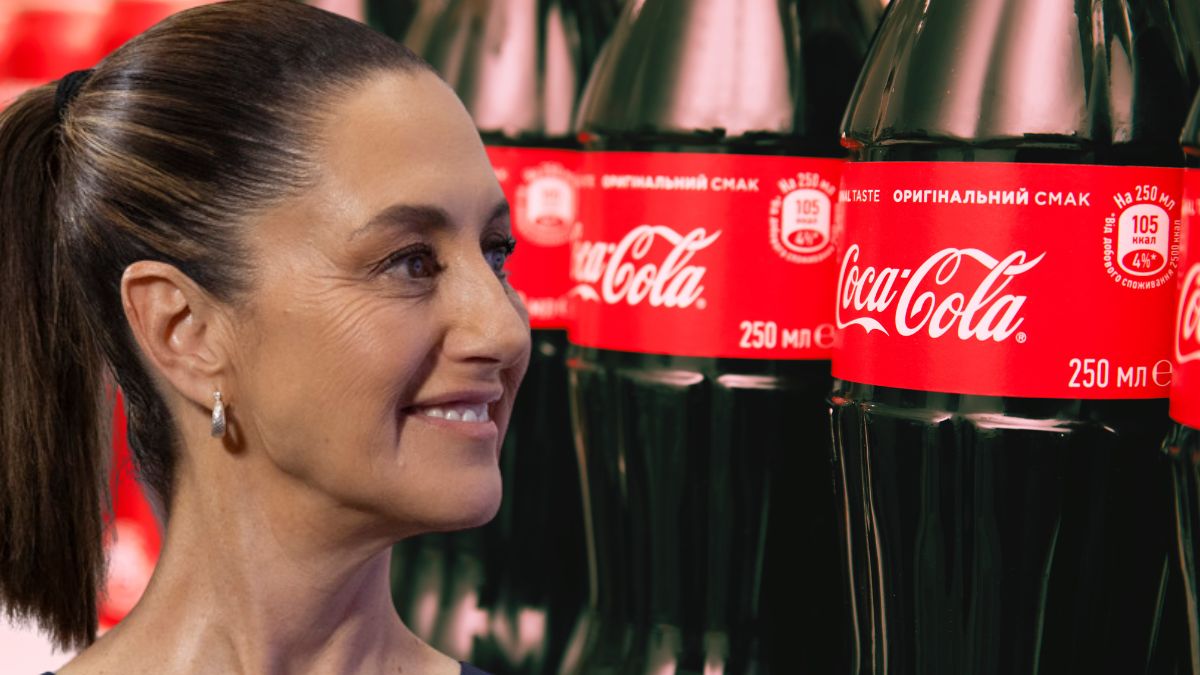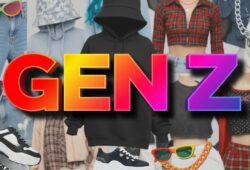
The President of Mexico, Claudia Sheinbaum, has undertaken a battle that won’t be easy: fighting the mass consumption of soft drinks. In Mexico, 99% of the population recognizes the Coca-Cola brand, making it a deeply rooted cultural icon in the everyday life of millions. Whether during family meals, celebrations, or casual gatherings, this soft drink has accompanied generations of Mexicans for decades. That’s why confronting such a normalized habit—backed by one of the most well-positioned and beloved brands in the country—represents a monumental challenge in terms of public health, communication, and even cultural resistance.
ALSO READ: Bait, Walmart’s phone company, is a success in Mexico: How did it do it?
Ministry of Health prepares a national campaign against soft drinks
On Tuesday, August 19, President Claudia Sheinbaum Pardo announced at a press conference the launch of a national campaign against soft drink consumption. The President explained that this is a public policy based on scientific data demonstrating the health damage caused by excessive intake of these beverages.
“The large amount of sugar in [soft drinks] has caused many problems among the population in our country, scientifically proven. So the problem is, as always, the abuse—don’t overconsume these sugary drinks.”
The campaign targets all brands, but it’s impossible to ignore that Coca-Cola has the highest presence and consumption in Mexico, making it, in practice, the most visible target of the federal strategy.
How strong is the bond between Mexicans and Coca-Cola?
The data shows a unique relationship between Mexican consumers and Coca-Cola. According to an analysis conducted by Merca2.0 based on Statista Brand KPIs data:
- 99% of Mexicans recognize the Coca-Cola brand.
- 83% of those who know it have consumed it in the last 12 months.
- 91% of its consumers say they will continue buying it in the future.
This positions Coca-Cola as the most consumed and most loyal soft drink brand in the country—well above competitors like Sidral Mundet (47%) and Peñafiel (46%). In a country among the global leaders in per capita consumption of sugary beverages, Coca-Cola’s dominance carries not only commercial but now political implications.
Another noteworthy fact: according to the Brand Footprint 2025 report by Worldpanel by Numerator, Coca-Cola is the most chosen brand by Mexicans.
Round one: SEP bans junk food in schools
The new government’s offensive goes beyond public campaigns. In November 2024, the Ministry of Public Education (SEP) announced a ban on the sale of junk food and processed foods in schools. The measure was implemented in March 2025 and, following a series of legal appeals, the SEP announced a legal victory.
“A juice and sugary beverage bottler, the world’s largest soft drink producer and bottler —through two of its subsidiaries—, a chamber of commerce, and a private university,” the SEP said in its statement.
Although no brand names were mentioned, it is widely known in Mexico that FEMSA is Coca-Cola’s main bottler, reinforcing the perception that Sheinbaum’s policies directly affect the company.
Minister of Education Mario Delgado Carrillo was clear: “Not one step back against junk food.”
He stated that for decades, large corporations’ interests prevailed over children’s health, but now the SEP, in coordination with the Ministry of Health, seeks to reverse that damage.
Round two: The failed Coca-Cola Caravan 2024 in Mexico City
One of the most symbolic illustrations of the shift in narrative is the cancellation of Coca-Cola’s traditional Christmas parade in Mexico City, announced for December 2024.
The Coca-Cola Caravan CDMX 2024 had generated great anticipation as it was expected to return to Paseo de la Reforma after years of absence. However, the city government, led by Clara Brugada, announced via a statement on social media platform X that the required permits were not granted: “The Government of Mexico City informs that no authorization has been granted for the event to take place, therefore, IT WILL NOT BE HELD.”
This message made it clear that the decision came from the authorities, not the company. Coca-Cola, for its part, issued a conciliatory statement: “In response to a request from the authorities, whom we respect and fully comply with.”
Although the specific reasons were not disclosed, many interpreted it as part of a broader context linked to the new government’s strategy to reduce children’s exposure to brands associated with sugary beverages and junk food.
Recognition from UNICEF
Even though the Sheinbaum administration has avoided naming Coca-Cola directly, the brand’s visibility and penetration into Mexicans’ daily lives inevitably place it at the center of the public debate.
In fact, a political gesture that did not go unnoticed was the commendation from UNICEF Mexico to President Claudia Sheinbaum for her policy banning junk food sales in schools. In a public comment, the international organization praised the government’s preventive health approach.
Can the government reduce soft drink consumption in a country where Coca-Cola is almost a religion?
The challenge is monumental. In a country where Coca-Cola is synonymous with cultural identity, tradition, and social life, changing consumption habits will be a long-term task. But the federal government has made its stance clear: health, particularly children’s health, will be the top priority.
The question now is whether this strategy will resonate with consumers—and whether industry leaders can adapt to this new regulatory environment without losing their relevance in the hearts—and habits—of Mexicans.










